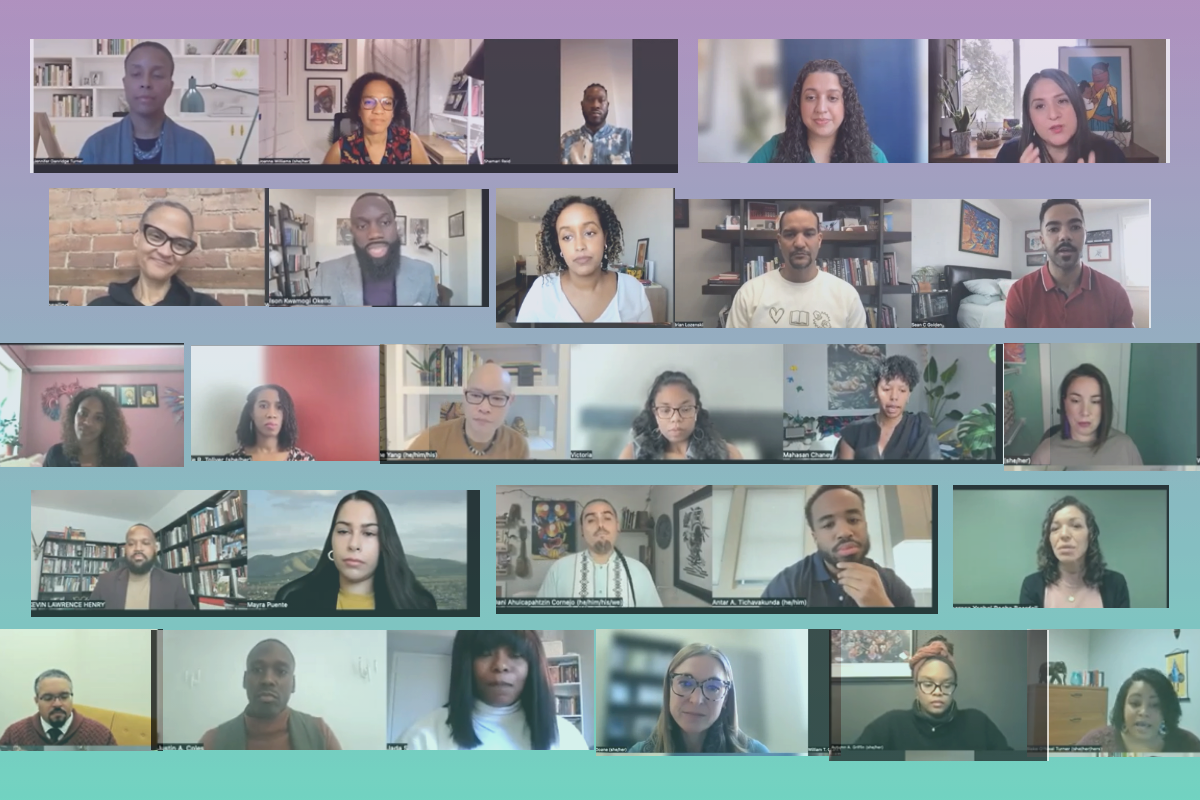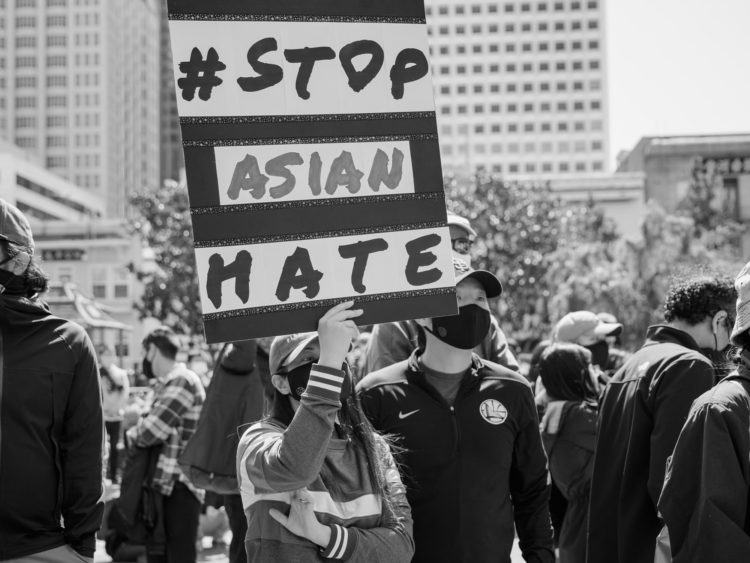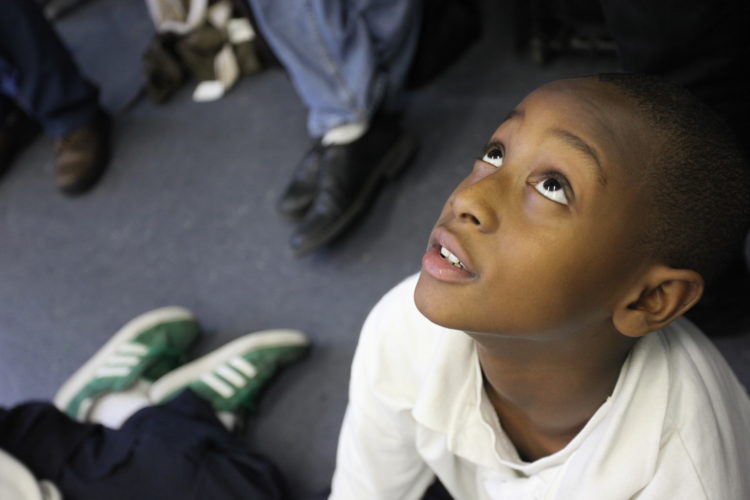The William T. Grant Foundation encourages research on reducing inequality that is grounded in well-theorized, rich conceptualizations of race, ethnicity, and Indigeneity (as well as other dimensions of inequality like immigrant origin and economic standing). In keeping with this interest, we awarded Eve Tuck and K. Wayne Yang an Officers’ research grant to develop an initiative to bring together researchers to reflect on the theories and conceptualizations of race, ethnicity, and Indigeneity that inform and shape their work. Due to overwhelming interest in engaging in this interdisciplinary conversation, the initiative generated two volumes, to be published later this year by Routledge, part of the Taylor and Francis Group.
Recently, Tuck, Yang, and colleagues at the Tkaronto Collaborative Indigenous Research Communities Land and Education (CIRCLE) Lab, conducted a series of webinars to serve as a space for chapter authors and editors to introduce themselves, share their chapters, and expand and reflect on their work.
Webinar: Learning to Theorize Blackness, Indigeneity, and Racism in Youth Research to Reduce Inequality: A Webinar Recorded Live
Participating Editors and Authors: Eve Tuck, K. Wayne Yang, Derek Houston, Justin A. Coles, Jennifer Turner, Kevin Lawrence Henry, Mahasan Chaney, Victoria Copeland, Mayra Puente, Jada Similton, Shamari Reid, Stephanie Toliver, Theresa Rocha Beardall, Wilson Kwamogi Okello, Dani Ahuicapahtzin Cornejo, Antar A. Tichavakunda.
In this webinar, Co-PIs Eve Tuck and K. Wayne Yang led a guided Q&A for authors to expand and reflect on their work and the processes they took in developing their chapters. This webinar was recorded live on April 27, 2023.
Below, we’ve gathered additional webinars, organized by volume, each of which includes a context-setting introduction from the editors. The webinar series and edited volumes were coordinated by Tkaronto CIRCLE Lab members Tiffany Hill, Jade Nixon, and Sefanit Habtom, all PhD candidates at the University of Toronto. There were also significant contributions from Tkaronto CIRCLE Lab researchers Milen Negash, Ella Martindale, and Razan Samara.
Volume: Conceptualizations of Blackness in Educational Research
This edited volume engages the specific junction of educational research and multiple theorizations of Blackness. Contributors attend to different theorizations of Blackness and put them in relational conversation with one another. A deep and relational engagement of theories of Blackness is particularly important in the current intellectual and political moment in Black studies, in which Black feminist, Black queer and trans theory, and Afropessimism are often conflated with one another. Indeed, theorizations of Blackness are often confused with more conventional sociological approaches that assume Black communities as sites of pathology, inequality and deficiency—which constitute an implied theory of Blackness that so many educational researchers are trained in and must learn to refuse. Many theorizations of Blackness that are prevalent in education are anti-Black at their foundation.
This book aims to advance contemporary and creative ways of conceptualizing Blackness, while refusing Blackness as a biological category or as solely theorized and defined through antiblack racism. A range of contributing scholars–from longtime researchers to scholars still in graduate school–use first-person storytelling to reconsider unsatisfactory research methods and theories, to recount how their learning has shifted and grown, and to reshape possibilities for Black studies in educational research.
This series of webinars below will live alongside the edited volume as a resource for deeper consideration of theories of Blackness, Indigeneity, and racialization, and how they have been (mis)understood and (mis)applied in the context of youth-focused research.
Webinar: Conceptualizations of Blackness in Educational Research – Part I: The jewels of our soul: Blackness and the fullness of existence
Section Introduction by: rosalind hampton
Chapter Authors: Justin A. Coles, Wilson Kwamogi Okello, Jada Similton
Webinar: Conceptualizations of Blackness in Educational Research – Part II: Illuminating Im/Possibilities
Section Introduction by: Sefanit Habtom
Chapter Authors: Brian D. Lozenski, Sean Cameron Golden
Webinar: Conceptualizations of Blackness in Educational Research – Part III: Black Futurities
Section Introduction by: Joanna Williams
Chapter Authors: Shamari Reid, Blake O’Neal Turner, Autumn Griffin, Jennifer Turner
Volume: New Approaches to Inequality Research with Youth: Theorizing Race Beyond the Traditions of Our Disciplines
For those engaging in research to reduce youth inequality, we know that alongside strong methods, we also need strong theorizing about racialization, racism, and racial categorization. Graduate school might have been a place where many of us learned methods which can be utilized to reveal deep set systems of racism in our society. However, many of us had to learn to theorize racialization and racism in less formal ways, including through participation in social movements, collaborations outside our comfort zones, peer-to-peer mentoring, discussions with students, or self-guided reading outside of our discipline. Certainly, learning to theorize meaningfully about race, racialization, and racism is humbling. The goal is not to arrive as an expert at a final destination, but instead, to understand our thinking as always a work-in-progress.
This edited volume shares contributors’ first person narrations of their own learning and unlearning curves, and some of the challenges and disappointments of breaking from the traditions of their fields, and finding another way. Drawing on contributors’ narrations of how they came to engage with compelling theories of Blackness, Indigeneity, and/or racialization, and how such theories inform the social science research they do with young people, this edited volume tells a multi-disciplinary story about the careful reading and assessment that is required to refuse universal theories of Blackness, Indigeneity, and racialization.
The reflections that contributors share about moving against the tides of their disciplines and towards their current approaches to youth research are major interventions of this edited volume. The chapters likely will not cohere into a universal theory that can just be simply applied—having different epistemological and ontological roots will mean that the theories do not necessarily fit together easily. The goal is not to assert a grand theory of race and racialization that can be generalized to every youth context. Rather, the volume as a whole is a gathering place of stories that encourage vulnerable and theoretically reflexive conversations about theories of Blackness, Indigeneity, and racialization among a community of scholars that are committed to reducing inequality in the lives of young people.
This series of webinars below will live alongside the edited volume as a resource for deeper consideration of theories of Blackness, Indigeneity, and racialization, and how they have been (mis)understood and (mis)applied in the context of youth-focused research.
Webinar: New Approaches to Inequality Research with Youth: Theorizing Race Beyond the Traditions of Our Disciplines – Part I: Our Theory Takes Place
Section Introduction by: Jade Nixon
Chapter Authors: Theresa Rocha Beardall, Kevin Lawrence Henry Jr., Mayra Puente
Webinar: New Approaches to Inequality Research with Youth: Theorizing Race Beyond the Traditions of Our Disciplines – Part II: Racialization is an Ongoing (Settler) Process
Section Introduction by: Leah Doane
Chapter Authors: Dinorah Sánchez Loza, Goleen Samari
Webinar: New Approaches to Inequality Research with Youth: Theorizing Race Beyond the Traditions of Our Disciplines – Part III: Refusing to Speak Against Ourselves and Our Communities
Section Introduction by: Eve Tuck and K. Wayne Yang
Chapter Authors: Victoria Copeland, Derek A. Houston, Mahasan Chaney
Webinar: New Approaches to Inequality Research with Youth: Theorizing Race Beyond the Traditions of Our Disciplines – Part IV: Our Stories Are the Heart of Theory
Section Introduction by: Joanna Williams
Chapter Authors: Dani Ahuicaptzin Cornejo, Antar A. Tichavakunda, Stephanie Renee Toliver







